 ऋग्वेद मन्त्र | ṛgveda mantra
ऋग्वेद मन्त्र | ṛgveda mantra
Viśvāmitra Ṛṣi, Gāyatrī Chhand, Bṛhaspati Devatā
वृषभं चर्षणीनां विश्वरूपमदाभ्यम्। बृहस्पतिंवरेण्यम्॥ ३।६२।६
vṛṣabhaṁ carṣaṇīnāṁ viśvarūpamadābhyam| bṛhaspatiṁvareṇyam|| 3|62|6
Translation: O Great Men! We sing the praise of Bṛhaspati (the preceptor of the Gods) for the joy of learning and for success in all our good actions. He is the most respectable and the greatest. His wishes are inviolable and we gain in (spiritual) strength by following in His footsteps.
Comments
Maharishi Viśvāmitra gives the highest lesson on spirituality in the Rig Veda (Mandala III, Chapter 62). This lesson forms the basis of the satya sanātana dharma (popularly known as Hinduism). After explaining the virtues of spiritual discipline, Viśvāmitra extols the virtuous Bṛhaspati addressing Him as the Lord of the inviolable, non-injurious sacrifice as well as that of the sky/air (ākāśa tattva) in the following rik (mantra Rig Veda 3-62-5).
शुचिमर्कैर्बृहस्पतिमध्वरेषु नमस्यत। अनाम्योज आ चके॥
śucimarkairbṛhaspatimadhvareṣu namasyata| anāmyoja ā cake||
sucimarka refers to good thoughts that form the seed for all good karma that do not violate the laws of nature and dharma.
arka refers to the Sun God as in Koṇārka [koṇa + arka i.e. the Sun in a trine where the trines of the horoscope/zodiac are the houses of worship at home (fifth house) or temple (ninth house)]. Here the specific reference to the Sun God as arka is to indicate its power as the Ātmakāraka to illumine the mind with thoughts that cause action. All thoughts do not cause action, but all actions must have a thought as the seed that causes it.
For example, in jurisprudence, this is the ‘motive’ behind a crime where the bad thought caused the crime to occur. In dharma, whereas the action is the cause for punishment, the nature and quantum of punishment is dependent on the ‘thought that went into the crime’ or the motive behind the crime. A classic example is the decision of Yudhiṣṭhira (eldest Pāṇḍava brother) when for a murder, he pronounced different punishment for the four accused. The Brahmin was given the death penalty, the Kṣatriya was incarcerated, the Vaiśya was fined and the Śūdra was let off with a light punishment. The reason was the relative ability of the four to distinguish between the result of their action as a sin.
Since the thought is the seed for the action, Viśvāmitra extols Bṛhaspati to illumine the intelligence (Bṛhaspati is the governor of the dhī śaktī and medhā) with good thoughts that cause excellent karma and lead us to a successful life.
adhvara means non injurious and is totally opposite to all the animal sacrifices or any violent action. It also refers to a Vasu (enlightener) and the lord of the sky/air (ākāśa tattva). The adhvara have been explained in detail in the Satapatha Brāhmaṇa (adhvara kanda).
Isa means lord or God as in Iśvara. Thus, advareshu refers to the lordship of Bṛhaspati over the non injurious, non violent sacrifices that are based on an inviolable principle that runs the entire created universe. It is the part of the spiritual being, the path of ahimsa or non-violence.
anamaya means not pernicious, free from disease, healthy, salubrious; (as) Shiva; anamayat means not causing pain, in good health; anamayitnu means salubrious or curative;
oja means to be strong or able, to increase, to have vital powers; ojas bodily strength, vigor, vitality (principle of vital warmth and action throughout the body)
acake means to emulate in action and speech like acara. This has two implications (1) the performance of the acamanyam before the prayers and japa (repetition) and (2) the advise to emulate the Guru in good thoughts and karma.
The Bṛhaspati Gāyatrī follows this advise of Viśvāmitra in the Ṛk mantra 3-62-6. Thereafter, Viśvāmitra explains the role of the Sun God and Param Ātmā in creation and sustenance which is followed by the Dharma Gāyatrī or the famous Gāyatrī mantra (Rk 3-62-10).
In the Bhagavat Gītā, Krishna teaches that among priests He is Bṛhaspati. So, worship of Bṛhaspati is the worship of Bhagavan. If you have a desire to be a priest, astrologer, spiritualist or one who is a karma yogi, recite this mantra and sincerely try to emulate Bṛhaspati.
Note of Caution:
Some other mantras are often mistaken as Bṛhaspati Gāyatrī. One such mantra reads something like “..vidmahe ..Dhimahi…tanno Guru Prachodayat” and is framed based on the Mantra Mahodadhih of Mahidhara. In that book, Mahidhara also admits that some of the mantra are his own creation (referring to the Gāyatrī’s) and requests the elders to accept them. When we have the Rig Veda etc. where the Gāyatrī Mantra’s have been expounded by the Maharishi’s, I fail to see the need to modify or replace them.
The Gāyatrī Chandas is a very technical aspect of the mantra. In the words of Sri Achyuta Dasa, one pada (foot) consists of eight phonemes sa-sa’-va-da’-pa-ra’-ra-ja’ and the gāyatrī chandas (metre) is tri-pada or having three feet of 8 phonemes each. Thus, ANY MANTRA in gāyatrī chandas has to be composed of exactly 24 phonemes. Any change or alteration in this by the addition or subtraction of phonemes being prefixed or suffixed to the mantra shall alter it and the potency of the gāyatrī chandas shall be lost. Some mantra are purposely in nicrit gāyatrī chandas to enable the addition of monosyllable bīja like ‘om’ etc.
2) Others have advised the addition of prefix’s and suffixes like “Om Bhur Bhuva Svaḥ” or “Om Haum Jum Saḥ” with some of the Rig-Veda Mantra like the Savitur Gāyatrī and Mritunjaya Mantra, but this is only for the initiated. It is advised[1] that unless otherwise instructed, ONLY the monosyllable “OM” be added to a Gāyatrī Mantra as per the directions contained in the Gaṇeśa Gāyatrī[2]. By adding other syllables and phonemes, we alter the sound vibration or frequency of the mantra and its effects. Such an addition/prefix should be silent in recitation i.e. the OM should be recited mentally while breathing in so that the prāṇa vāyu accumulates in the body. The gāyatrī is recited when the air is expelled.
3) In the words of Sri Aurobindo Ghose[3] “To translate the Veda is to border upon an attempt at the impossible.” In fact every interpretation seems to be apt from the angle and depth of understanding of the translator, yet is grossly deficient in the higher spiritual thought that is impersonal, universal and full of symbolism.
Frequently Asked Questions
Subject: Bṛhaspati Gāyatrī Experience
Q1: Narasimha: Pranaam Sanjay, Apart from “charshaninaam”, I was reading Bṛhaspati Gāyatrī with a mistake earlier. I was reading “adaabhyam” as “adaabhyaam” (note the long “aa” after “bhy”). I noticed the correct version yesterday. Short “a” must be correct and I have so far read it incorrectly. Luckily, I read this mantra very sparingly. I made both the changes and read it. I was having some bad thoughts as I read it. For example, I thought Jupiter in reality gives passion and lust and not Venus. Such undesirable thoughts crossed my mind.
Based on this, I am inclined to read it with short “i” in “charshaninaam” and short “a” after “bhy” in “adaabhyam” (i.e. make one change and ignore the other). Do you approve this decision? Should I believe the signals like good and bad thoughts when reading a mantra or should I just dismiss them? I did not have this experience with any other mantra. So I don’t know what this experience means.
Reply: Sanjay: Your fears are unwarranted. The Gāyatrī are perfect Mala Mantra and do not have any negative impact what-so-ever. Even a child can recite these without fear, but only what is given in the Rig Veda. Any additions or alterations changes the note and frequency and the complete power of the mantra. You will find all these details in my books. Thus even if you recite this by mistake, it is self correcting like the name of Vishnu. In Oriya we do not have “V” akshara and pronounce it as “B”. “Bisnu” or as a kid “Bistu”…it is self correcting and is a very compassionate name of the Lord. Thus we need not have any fears. Similarly, other languages may not have other phonemes and this does not mean that Vishnu does not exist for them. It only indicates the gradual movement from the lesser perfect towards the perfect Sanskrit.
In your chart, Bṛhaspati is the Lord of the seventh house and thus you had the strange feeling of passion associated with the Bṛhaspati Gāyatrī. Fact remains that it gives the effect of Jupiter and this is the greatest blessing in any chart. This initial feeling also tells you about your own level of sattva at a point of time and helps you to overcome your weaknesses and become more sattvika.
Other Questions
Q2: Narasimha: Should I read it only in my Pooja after bath? Currently, I read it whenever I have time. I go for a walk for a couple of miles and I read it then. I read it when driving. Is this acceptable or a bad approach? On one hand, cleanliness and asana suddhi are required for mantras. On the other hand, it is a sattvika mantra. I want your honest guidance.
Reply: Sanjay: There is no restriction like this. The Gāyatrī Mantra is a form of Bhagavan Himself as is clearly stated in the Bhagavat Gita. Since there is no restriction to remembering Him at any place or any time, there can also be no restrictions about reciting the mantra anywhere or at any time.
However Bhagavan also adds (in the Gita) that He is to be remembered or meditated with the monosyllable “OM”[4] and the question of How to remember Him has been explained in detail in the Srimad Bhagavatam. This is the method of Mantra Siddhi. Thus any mantra Siddhi can be achieved by adding OM to the beginning of the mantra and reciting it. Secondly all errors or flaws in any mantra can be removed by adding OM at the beginning (prefix) and end (suffix) of the mantra thereby enclosing it. This has been explained in the Rig Veda (Ganesha Gāyatrī as explained at footnote-2).
Thus we can conclude that the Mantra, if recited with OM has to be repeated in Pooja and with asana Suddhi etc, whereas it can be recited as given in the Rig Veda (without Om etc) at any place and time.
Q3: Narasimha: You told me to read the mantras after getting up, before my feet touch the ground. I don’t clearly remember if this is for both Janaka Shadakshari and Bṛhaspati Gāyatrī or only for Janaka Shadakshari. Currently I read both after getting up. But is that what you said or did I remember it wrong?
Reply: Sanjay: All depends on what you associate your Guru with. I am honored to see that you associate me (Giver of the Bṛhaspati Gāyatrī) so closely with the other Guru’s of the Parampara (Achyuta dasa, the ardent disciple of Sri Chaitanya Mahaprabhu – Giver of the Janaka Shadakshari). It maybe noted that the Gāyatrī has to be given personally. Being a Mantra of the Rig Veda or a Śruti[5], it has to be physically heard from the Guru or transmitted by his Icchā Śaktī.
Thus, there is nothing wrong in doing both in the morning before alighting from the bed. It is better in a way as it ensures your primary duty as the first karma of the day.
Q4: Narasimha: Can I read a Gāyatrī without at least washing mouth?
Reply: Sanjay: Washing mouth is still a cleaner proposition. What about reciting this in the Graveyard or Burning ghats? Yes you can do this at any place and at any time. Don’t add OM in such a situation. My father would say that as a child he had to cross the Smasan (Graveyard) in the night while returning from school and would recite the Gāyatrī whenever he felt afraid. The fear would vanish and in a few minutes he would become very happy. He never had any bad experiences during such times.
For other questions refer to the Appendix in my book “Vedic remedies in Astrology”
HARI OM TAT SAT
[1] I was initiated into the Gāyatrī Mantra (Savitur). When the chief Purohit (Priest) recited this in my ears, I requested clarification as to why “om bhur-bhuva svaḥ” had been omitted. In his quiet and stern manner, he advised me to stick to the Rig-Veda and to recite “OM” mentally while breathing in and the rest of the Gāyatrī Mantra while breathing out. This incident proved to be the beginning of my quest for Para-Vidyā (Divine knowledge).
[2] Gaṇeśa Mantra (Rig Veda)
गणानां त्वा गणपतिं हवामहे कविं कवीनामुपमश्रवस्तमम्।
ज्येष्ठराजं ब्रह्मणां ब्रह्मणस्पत आ नः षृण्वन्नूतिभिः सीद सादनम्॥
gaṇānāṁ tvā gaṇapatiṁ havāmahe kaviṁ kavīnāmupamaśravastamam|
jyeṣṭharājaṁ brahmaṇāṁ brahmaṇaspata ā naḥ ṣṛṇvannūtibhiḥ sīda sādanam||
Translation: O Ganesha, Lord of all seers, praise be to Thee; Thou art Omniscient and the unmatched wisdom of the wise. Thou art the precursor (OM) of all prayers and the Lord of all souls; we pray for Thy guidance for success in all good actions.
Comments: This mantra clearly advises the prefixing of the monosyllable “OM” before all mantra.
[3] The Secret of the Veda by Sri Aurobindo, Sri Aurobindo Ashram Trust, Pondicherry, India
[4] oṁ ity ekākṣaraṁ brahma; vyāharan mām anusmaran.
yaḥ prayāti tyajan dehaṁ; sa yāti paramāṁ gatim (Gita 8.13) (Translation by Srila Prabhupada: Bhagavat Gita As it is)
[5] Literally, heard from God
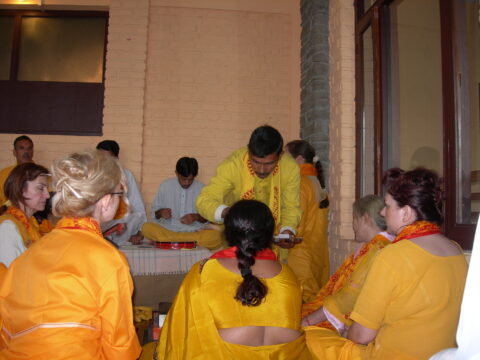
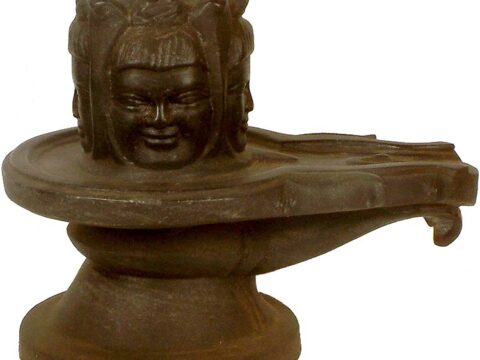
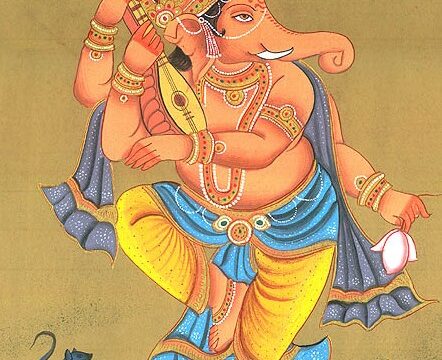
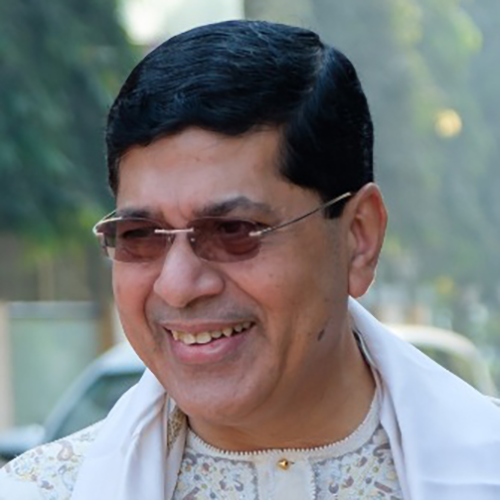
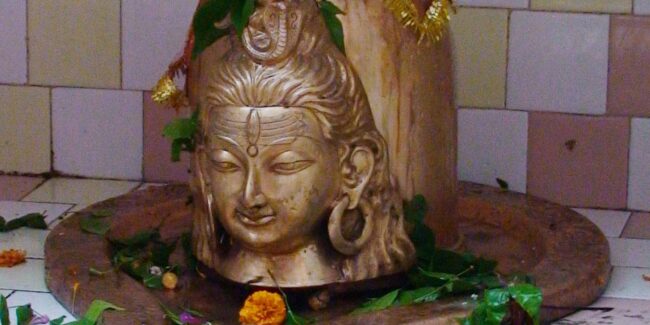
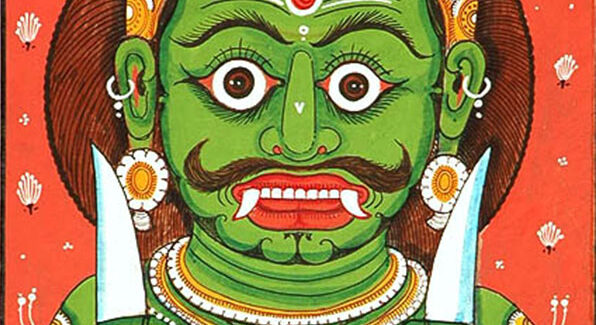
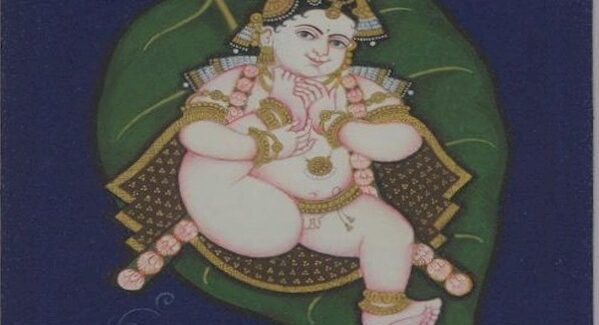
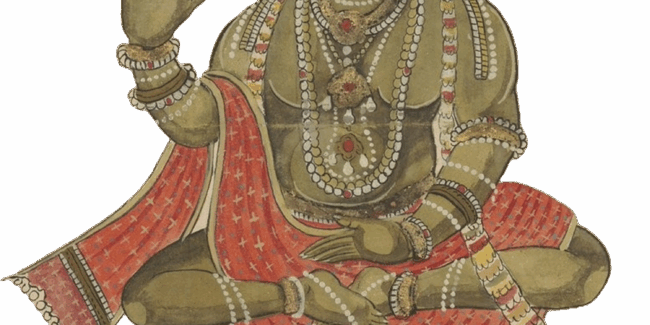
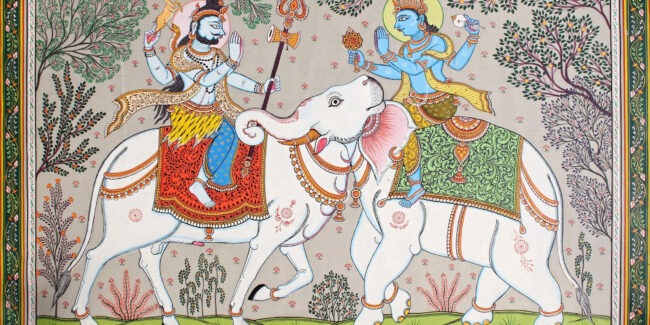
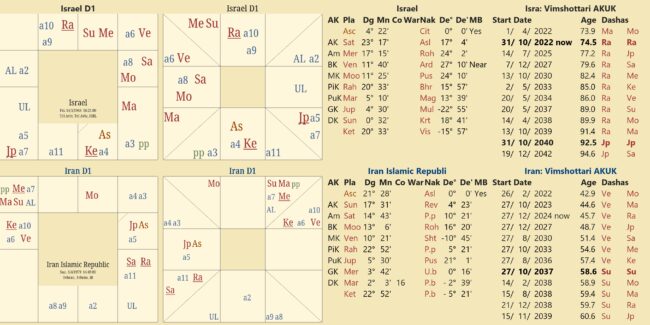
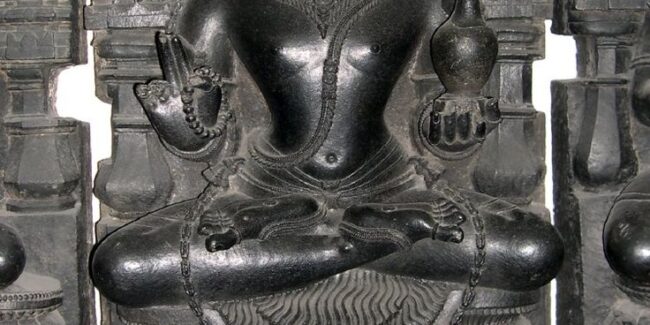
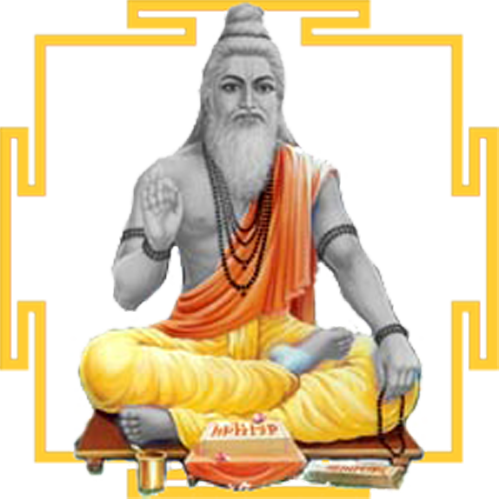 DBC offers online courses in jyotish (Vedic Astrology) taught directly by Sanjay Rath as per the tradition, through narrated power points and other audio tools. The courses are at different levels, from the beginners through the intermediate to the advanced and are known as SoHamsa | DBC courses, with individual classrooms and assistant teachers
DBC offers online courses in jyotish (Vedic Astrology) taught directly by Sanjay Rath as per the tradition, through narrated power points and other audio tools. The courses are at different levels, from the beginners through the intermediate to the advanced and are known as SoHamsa | DBC courses, with individual classrooms and assistant teachers
 Sagittarius Publications is the publisher and distributor the popular quaterly magazine the Jyotish Digest, as well as many thorough books on the subject of Vedic Astrology or Jyotish.
Sagittarius Publications is the publisher and distributor the popular quaterly magazine the Jyotish Digest, as well as many thorough books on the subject of Vedic Astrology or Jyotish.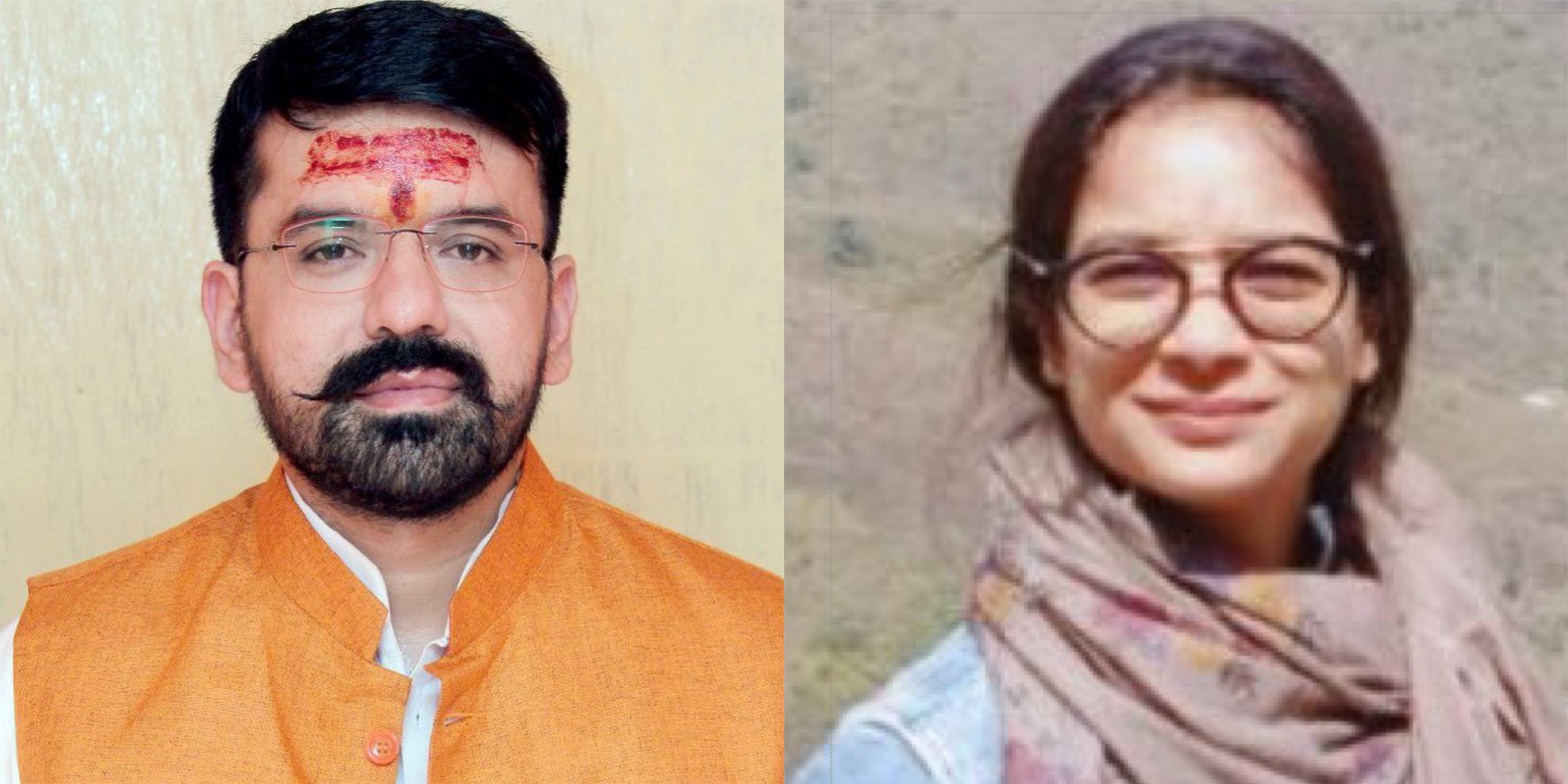 We have an excellent pandit Divākar ‘Deva’ Mishra, who is from the priests of Vindhyāvāsini Siddha Pīṭha to guide you through the hundreds of temples of Kāśi [Varanasi] and neighbouring regions. He can organise your pūjā, keep you safe and take care. He is supported by an English-speaking well-travelled spouse ‘Supriya Mishra’. Please contact them directly for any services, remedial pūjā and tours. They handled the 60+ member Kāśi Jyotiṣa Group 2022.
We have an excellent pandit Divākar ‘Deva’ Mishra, who is from the priests of Vindhyāvāsini Siddha Pīṭha to guide you through the hundreds of temples of Kāśi [Varanasi] and neighbouring regions. He can organise your pūjā, keep you safe and take care. He is supported by an English-speaking well-travelled spouse ‘Supriya Mishra’. Please contact them directly for any services, remedial pūjā and tours. They handled the 60+ member Kāśi Jyotiṣa Group 2022.
Hello, Sir may I know if the garuda mrityu raksha mantra can be performed for Husband’s long life and not for myself? or if not, cud you please suggest some other regular mantra that i can chant everyday for my life partners’ long life?
You can chant the Mrityunjaya Mantra for the long life of husband. Particularly the Vyasa Mrityunjaya mantra.
Can this be chanted for general good health for anyone?
Yes